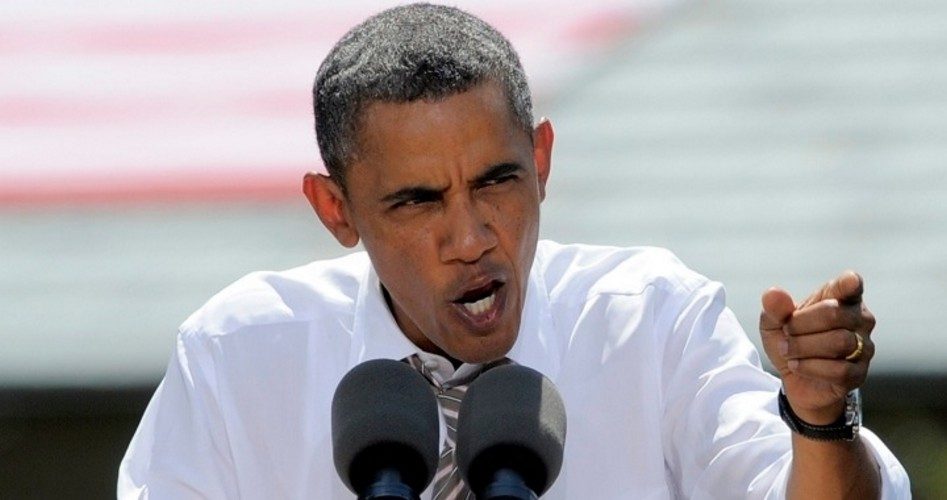
When Ann Romney told CBS News that Barack Obama’s campaign against her husband amounted to nothing more than an all-out plan to “kill Mitt Romney,” she wasn’t lying. Obama’s team has dealt Romney a series of low blows, but his running mate’s latest comments struck a “new low,” according to Romney’s campaign.
Yesterday, Vice President Joe Biden told voters at a rally in Virginia that Mitt Romney had promised that upon assuming the presidency he would “unchain Wall Street.” In doing so, Biden continued, the former governor of Massachusetts would end up putting “y’all back in chains.”
Biden never explicitly singled out anyone by race, and his remarks were made within the context of the issue of Romney’s treatment of financial institutions. Still, while Biden is notorious for misspeaking, that his audience was largely comprised of blacks makes it hard to avoid the conclusion that he intended to convey a not-so-subtle message that Romney’s policies would result in the restoration of slavery.
Andrea Saul, a Romney spokesperson, wasted no time in replying: “After weeks of slanderous and baseless accusations leveled against Governor Romney, the Obama Campaign has reached a new low.” Saul added that Biden’s assertions are unacceptable “in our political discourse and demonstrate yet again that the Obama Campaign will say and do anything to win this election.”
Upon challenging Obama to express his views on Biden’s comments, the president’s deputy campaign manager, Stephanie Cutter, replied: “The bottom line is that we have no problem with those comments.”
Cutter later explained that Biden’s statements were in line with past statements that he had made in connection with the middle class and “the devastating impact” on “middle class families” of “letting Wall Street write its own rules again.”
Obama’s team had promised long before the Republican presidential primaries had ended that it planned to launch an unqualified assault against whichever GOP candidate wound up being the nominee. When it could no longer be credibly denied that Romney would be the presumptive nominee, the Obama campaign specifically declared that it would aim to “destroy” him.
Now, it appears that Obama is making good on his word.
On August 15, Romney spoke to CBS This Morning. During his interview he claimed that Obama “seems to be running just to hang onto power,” for both the president and his vice president are intent on executing “a divisive effort to keep” people “from talking about the issues.” Romney also charged Obama with conducting a campaign that is “demeaning to the office of the White House,” a campaign “of enmity and jealousy and anger.”
He implored Obama to elevate his tone.
In stark contrast to the once popular perception of Obama as “the post-partisan” politician, the reality of Obama the political entity is easily gotten from his track record. From the time he launched his political career at a fundraiser at the home of “the unrepentant terrorist” and former Weather Underground member Bill Ayers to the present, Obama has always appropriated “Chicago-style” politics when dealing with his opponents.
In 1996, he succeeded in eliminating three of his Democratic challengers from the ballot, in effect invalidating the numerous signatures that they had accumulated in voters’ petitions.
In the 2008 Democratic presidential primaries, he wasted not a moment to exploit his color by insinuating that the Clintons — and by extension, their supporters — had racial animosity toward him.
After Obama became the Democratic nominee, he was as unreserved in attacking John McCain as he had been when reckoning with other rivals. Obama’s campaign went so far as to release an ad in which it mocked McCain for the physical handicaps that he suffered as a result of the time he spent in a Vietnamese prisoner of war camp.
His campaign against Romney is, then, consistent with his history.
Romney, on the other hand, is not acting with nearly the amount of aggression with which he has toppled previous adversaries. This, at any rate, is the judgment of Republicans.
Byron York, writing for the Washington Examiner, authored an article last month titled: “How did vaunted Romney Death Star break down?” York observed that when it looked like Newt Gingrich might prevail over Romney, “Team Romney not only dropped oppo research on Gingrich; before it was all over, Romney and his SuperPAC allies spent about $15 million ads in Florida, three times what Gingrich and his supporters spent.”
York promptly accentuated that every cent of these millions of dollars — “literally all” of it — “was on negative advertising.” He continued: “Romney’s assault completely dominated the airwaves; 68 percent of all ads aired in Florida were Romney attacks on Gingrich. It worked; Romney won Florida handily.”
York noted that while the party faithful were unsettled by the spectacle of Romney eviscerating a fellow Republican, they saw a silver lining: Perhaps this Massachusetts “moderate,” as Gingrich not so affectionately referred to him, would be equally aggressive when combating Obama.
From the perspective of the base, York points out, this hope has of yet gone unrealized.
“Now, the general election campaign is here, and the talk is of the Obama killing machine, not the Romney death star.”
The verdict is clear: “By most accounts, the Romney campaign is not displaying the super-aggressive effectiveness it showed in the primaries.”
Romney is pummeling Obama when it comes to eliciting campaign donations, however, but campaign finance laws prevent him from spending any of it until after he officially becomes the GOP nominee in Tampa, Florida at the end of August.
Photo of Barack Obama: AP Images



